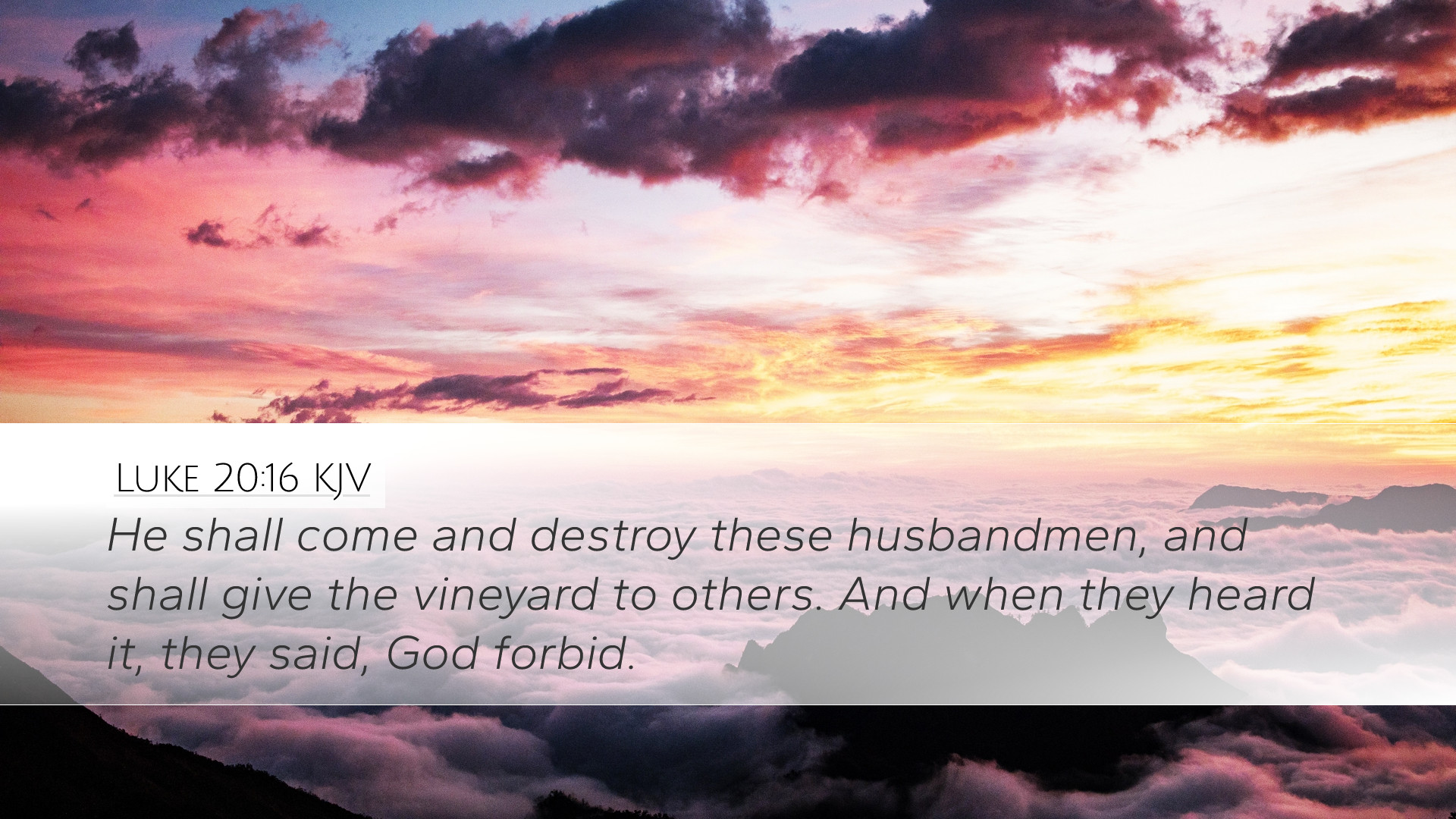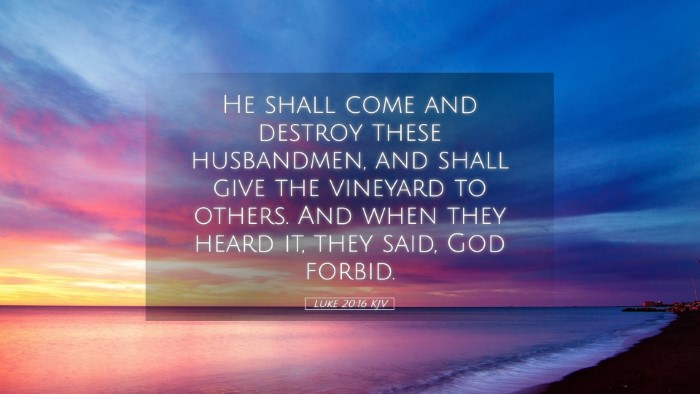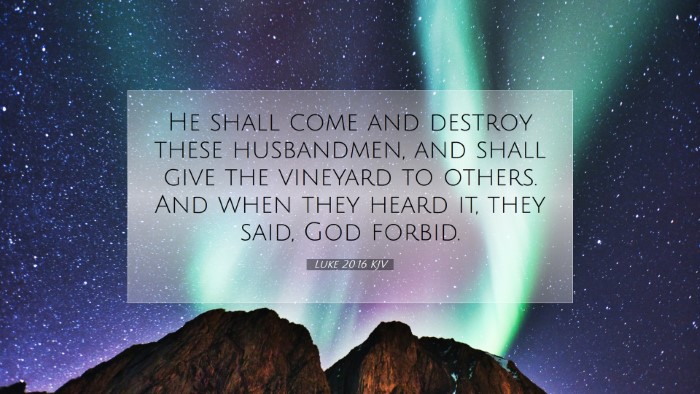Commentary on Luke 20:16
Verse Context: Luke 20:16 states, "He will come and destroy those vine-dressers and give the vineyard to others." This proclamation comes during a parable that underscores themes of judgment, responsibility, and divine oversight.
Introduction
This verse is part of the Parable of the Wicked Tenants, which Jesus told in response to the questioning of His authority. The parable serves as a poignant critique of the religious leaders of the time, illustrating God’s expectation for faithful stewardship of His Kingdom.
Historical and Cultural Context
Understanding the context of this passage is essential. Vineyards were a common cultural metaphor in Jewish literature, representing Israel itself. The tenants symbolize the leaders of Israel, entrusted with the care of God's people. The imagery conveys both the blessings given to Israel and the consequent judgment due to their failure to honor God’s covenant.
Judgment and the Transfer of Authority
The phrase "He will come and destroy those vine-dressers" indicates a strong judgment against those who failed in their responsibility. This loss of stewardship signifies a transfer of God’s favor from the unfaithful tenants to others, representing the inclusion of the Gentiles into the covenant community.
Theological Insights
The verse contains several key theological insights pertinent to pastors, students, and theologians:
- Divine Judgment: Matthew Henry emphasizes the certainty and severity of God's judgment against unfaithful leaders, highlighting that God's patience will ultimately run out, resulting in direct consequences.
- God's Sovereignty: Albert Barnes notes the sovereign authority of God in dispensing grace and judgment. The transfer of the vineyard signifies God's right to choose His stewards as He deems fit.
- Covenantal Faithfulness: Adam Clarke emphasizes the importance of faithfulness to covenant obligations. The failure of the leaders indicates a breach of covenant, leading to dire repercussions.
God's Actions
It is imperative to note that God’s action in "destroying" the vine-dressers is not merely punitive but also corrective, aiming to restore the proper alignment of His people with His purposes. This reflects a broader biblical narrative in which God continually reaches out to reclaim those who have strayed.
Practical Application
For modern believers, this passage carries substantial weight regarding leadership and responsibility within the Church:
- Accountability: Leaders within the Church must recognize that they are stewards of God's gifts and will be held accountable for their actions and decisions.
- Grace and Inclusion: The verse implies a shift from exclusive privilege to inclusive grace. Within Christian communities, it calls for an openness to all who seek God, irrespective of their background.
- Continual Vigilance: The fate of the wicked tenants serves as a warning that complacency and neglect in the stewardship of God's Kingdom can lead to severe consequences.
Conclusion
Luke 20:16 is a profound declaration encapsulating themes of judgment, accountability, and divine grace. As elucidated by Matthew Henry, Albert Barnes, and Adam Clarke, it challenges readers to reflect deeply on their responsibilities as stewards of God's vineyard and to live in a manner worthy of their calling. In a society increasingly straying from biblical truths, this passage encourages vigilance in leadership and fosters inclusivity within the Body of Christ.
Final Reflection
As we contemplate the weight of this verse, let us commit to being faithful tenants of God's vineyard, recognizing the gravity of our responsibilities and the vastness of God's grace.


